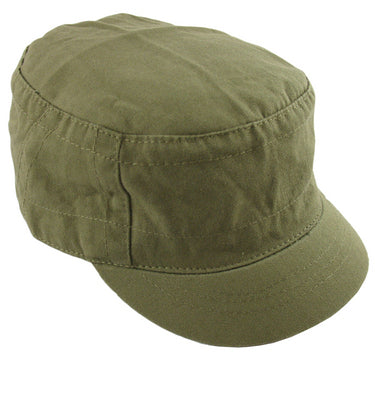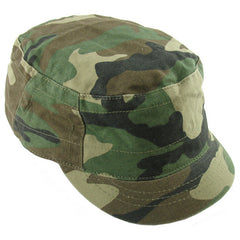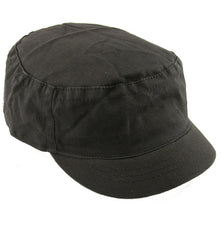Fashionable Hats
cover your pate
Rebel General

”Fidel Alejandro Castro Ruz (born August 13, 1926) is the current President of Cuba. On July 31, 2006, Castro, after undergoing intestinal surgery for diverticulitis, transferred his responsibilities to the First Vice-President, his younger brother Raúl.
He led the revolution overthrowing Fulgencio Batista in 1959 and shortly after was sworn in as the Prime Minister of Cuba. Castro became First Secretary of the Communist Party of Cuba in 1965, and led the transformation of Cuba into a one-party socialist republic. In 1976 he became president of the Council of State as well as of the Council of Ministers. He also holds the supreme military rank of Comandante en Jefe (“Commander in Chief”) of the Cuban armed forces.
Castro first attracted attention in Cuban political life through nationalist critiques of Batista and the United States political and corporate influence in Cuba. He gained an ardent, but limited, following and also drew the attention of the authorities. He eventually led the failed 1953 attack on the Moncada Barracks, after which he was captured, tried, incarcerated and later released. He then travelled to Mexico to organize and train for the guerrilla invasion of Cuba that took place in December 1956. Since his assumption of power in 1959 he has evoked both praise and condemnation (at home and internationally). Castro is described by opponents as a dictator while supporters see Castro as a charismatic liberator.
Outside of Cuba, Castro has been defined by his relationship with the United States and the former Soviet Union, both of whom courted Cuban attentions as part of their own global political game. After the failed Bay of Pigs invasion of Cuba in 1961 by U.S. backed forces, the Castro-led government has had an openly antagonistic relationship with the U.S., which encouraged a closeness with the Soviet bloc. The collapse of the Soviet Union in 1991 forced Castro to seek alliances regionally to counter U.S. hegemony and find like-minded partners in regional nationalist figures such as Hugo Chávez in Venezuela and Evo Morales in Bolivia. Over time he has become a world icon.”
—from wikipedia



